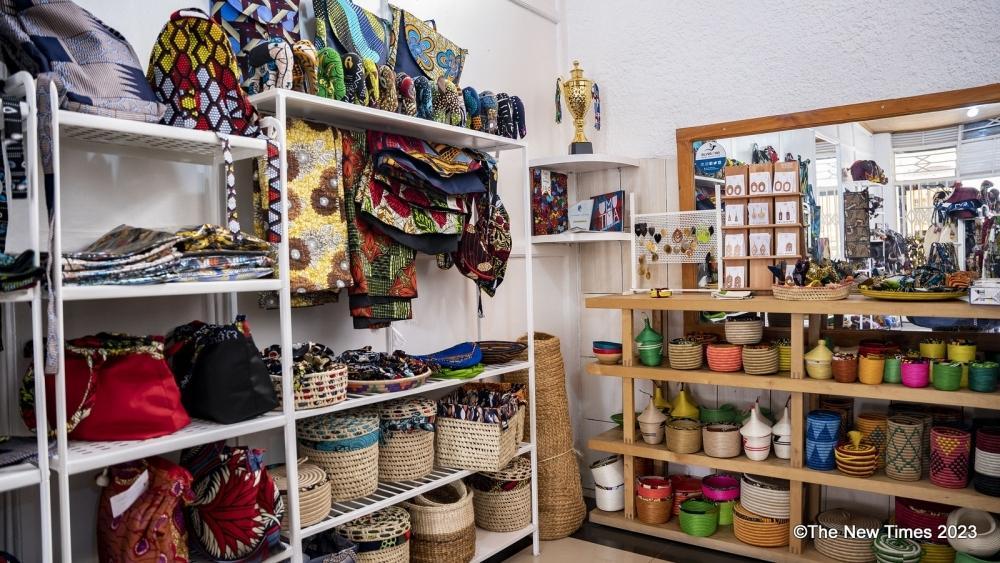Africa-Press – Rwanda. The narrow definition of the creative industries as merely ‘art and craft’ needs to evolve to encompass the sector’s potential to create jobs and fuel economic growth in Africa.
This is according to industry experts and players who say that the creative industries are more than the on-stage talent and include an entire value chain that needs to be recognised and supported.
According to a report by the United Nations Educational, Scientific and Cultural Organization (UNESCO), Africa is projected to produce up to 10 per cent of global creative goods exports worth roughly $200 billion or four per cent of Africa’s gross domestic product (GDP) by 2030.
However, to realize this potential, more needs to be done to address the challenges that face this sector that is often overlooked.
“Access to capital is a huge barrier to the growth of the creative industries in Africa,” Elodie Shami, Director General at Imbuto Foundation, said on the sidelines of the Youth Connekt Africa Summit in Kigali.
She emphasised that in order to transform artistic vision into tangible impact, targeted financial mechanisms such as grants and venture capital are essential to ensure that the creative industries are both profitable for artists and sustainable for the various economies on the continent.
The underinvestment in Africa’s creative economy has been worsened by the risk perception, limiting the possibilities for creatives to obtain bank loans, leaving them to depend on self-financing.
“Local and foreign investors need to view the creative industries not as a risk, but as a valuable opportunity that strengthens our economies,” said Sandrine Umutoni, Rwanda’s State Minister for Youth and Arts.
Reiterating the importance of supporting the creative industries value chain, Umutoni said that the creative economy is a tapestry of interconnected roles that contribute to a thriving ecosystem and fuel local economies.
Rwanda’s creative economy
In Rwanda, the creative industries have grown significantly over the years, with the government committing to expand and nurture this sector as part of its economic diversification strategy.
According to the National Institute of Statistics of Rwanda (NISR), the Cultural and Creative Industries (CCI) related activities have significantly increased from 1 per cent in 1999 to 5 per cent in 2023 as the contributions to the total stake of services in the National Gross Domestic Product (GDP).
Antoine Kajangwe, Permanent Secretary in the Ministry of Trade and Industry, said that the government has been intentional to create initiatives that help to develop the creative industries in the country.
“The Art Rwanda Ubuhanzi initiative launched in 2018 by the Government of Rwanda in partnership with Imbuto Foundation, has helped to identify and nurture talent from all over the country and give them skills on how to innovatively market their talents,” he noted.
Kajangwe also emphasised on the importance of protecting creative works, adding that creatives in Rwanda can now access finance through their copyrights.
”In Rwanda, the legislation is there that allows creatives to use their copyrights or trademarks as collateral in banks,” he said, adding that the government is also working to ensure artists receive royalties for the use of their works.
Recently, creatives in the country raised concerns over the new intellectual property law which permits the government, schools, and religious institutions to use their works without consent or payment of royalties.
AFCFTA IP Protocol
On a continental level, the AfCFTA Intellectual Property Rights Protocol was adopted by the African Union Assembly in 2023.
The protocol aims to ensure that there are harmonised rules and principles for the promotion, protection, cooperation, and enforcement of IP rights.
Kajangwe noted that a harmonised system of IP protection across the continent will promote the creative industries.
“Creatives shouldn’t have to register their protections in every country on the continent. If registered in one country, these protections should be recognised in other African countries as well,” he said.
For More News And Analysis About Rwanda Follow Africa-Press






